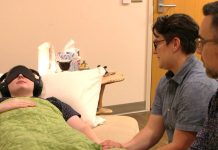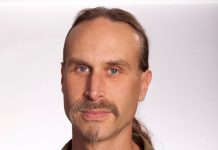In late 2019, Johns Hopkins University has launched a center for psychedelic research with $17 million in donations solely from private donors, the first of its kind in the United States. Working behind the scenes to head up the research at the Center for Psychedelic and Consciousness Research is William A. Richards, a psychologist in the Psychiatry Department of the Johns Hopkins University School of Medicine, Bayview Medical Center, a teacher in the Program of Psychedelic Therapy and Research at the California Institute of Integral Studies, and in clinician in private practice in Baltimore.
Beneath his friendly and unassuming demeanor is a man with a vast array of knowledge regarding human behavior in general, and the impact of psychedelics upon mental health and productive functioning specifically. His graduate degrees include M.Div. from Yale Divinity School, a Master of Sacred Theology degree from Andover-Newton Theological School, and a Ph.D. from Catholic University. Richards also trained closely with Abraham Maslow, whose work with gestalt psychology led him to formulate his Hierarchy of Needs, his seminal works on self-actualization, the potential of humans to transcend their circumstances.
In a recent interview I watched, Richards stated that Maslow was a “Jewish mystic” who never needed to use psychedelics because he was always having naturally transcendental experiences, also known as peak experiences. As you learn more about Richards, it’s not difficult to see this spiritually-oriented, pro-growth perspective colors his belief systems and resulting approach to both research and his efforts to help people establish personal meaning and spiritual significance in their lives.
Unlike Maslow, however, Richards began his journey into psychedelia with a personal experience of using mushrooms while a graduate student in Germany. As Richards puts it “That was before I had even heard the word ‘psychedelic. I had this incredibly profound experience. And in many ways, the rest of my life is footnotes to that experience.” Richardson went on to publish, along with co-author Walter N. Pahnke, Implications of LSD and Experimental Mysticism in 1966. Pahnke and Richards reached the following conclusion:
It would seem that not suppression, but informed education and an expanded program of research with an interdisciplinary approach is urgently needed. Education needs a basis of empirically derived facts on which to draw. To gather such facts, concerning both dangers and possible benefits, increased, responsible research in all realms of application is needed before research is stopped because of the growing public hysteria in the face of the black market. We propose carefully controlled studies in which drug dosage, setting, personality variables, experimenter expectation, experimental procedure, and follow-up can be regulated.
Only then can answers be found to questions concerning the personality characteristics or disturbances that contraindicate the use of the drugs, the optimal treatment procedures to ensure the most beneficial effect, and the best screening procedures to identify persons most likely to be harmed or those who should be singled out for special handling. Patients with various symptoms and relatively normal subjects both need to be intensely studied in such experiments.
However, the classification of psilocybin and LSD as Schedule I drugs by the U.S. federal government, in parallel with a growing disinterest in the application of psychedelics to mental health in academia meant a delay in the further scientific investigation for Richards.
Undaunted, Richards resumed his passion for the power of psychedelics in the early 2000s, co-authoring the publication Psilocybin can occasion mystical-type experiences having substantial and sustained personal meaning and spiritual significance in 2006 at Johns Hopkins University School of Medicine.
Among other positive findings, Richards and his colleagues found “ . . .when administered to volunteers under supportive conditions, psilocybin occasioned experiences similar to spontaneously occurring mystical experiences and which were evaluated by volunteers as having substantial and sustained personal meaning and spiritual significance.”
Moreover, the researchers concluded, “It is remarkable that 67% of the volunteers rated the experience with psilocybin to be either the single most meaningful experience of his or her life or among the top five most meaningful experiences of his or her life.” For Richards, this was another affirmation of two things he firmly believed in: First, that people are spiritual beings in need of mystical experiences that bring meaning and motivation, and second, psychedelics, when used in a structured setting under the supervision of an appropriately-trained clinician, present a powerful therapeutic approach to fulfilling these transcendental experiences.

As Richards frames it, “You remember that something shifted in your view of yourself, your view of other people, your view of the world, your understanding of what it is to be a human being. And that’s incredibly fascinating and powerful.”
In 2015, Richards wrote and published the book, Sacred Knowledge: Psychedelics and Religious Experiences, which Torsten Passie, MD, PhD at the Hannover Medical School called “…the most comprehensive overview of the actual use of psychedelics in psychotherapy and of the transformative power of mystical experiences.”
In line with Richards’ ability to capture the import of the profound healing nature of psychedelics in simple, accessible terms, a reviewer of the book remarked, “Sacred Knowledge is not only timely and relevant to a whole host of current social/legal issues but also addresses, with seemingly effortless ease, many of the deeper/subtler metaphysical implications of psychedelics―their therapeutic and spiritual potential. Richards’s clear prose makes articulating such difficult topics look easy.”
Perhaps ironically, for a man so focused on the benefits of psychedelics as a transformative agent, Richards has also conducted research on the power of psilocybin to bring about peace, serenity, and a recommitment to living in people who have been suffering from terminal cancer. This is a game-changer not only for these people but for their families and friends, who often find their loved ones are increasingly isolated and depressed.
Here‘s how Richards put it: “But that changes our whole attitude of how we live fully until we die. There’s so many people approaching death with cancer or whatever, who are just kind of lying in bed being depressed, instead of living fully and it doesn’t have to be that way. I’m very fond of that application if you will. But treating addictions and treating depression, post-traumatic stress, we’re just starting to look into how it may impact Alzheimer’s disease, things like that”
So, in a world becoming increasingly devoid of personal interaction, as the internet and COVID-19 force many of us into further isolation, fostering feelings of loneliness and disconnectedness, in a society in which our sense of meaning is increasingly predicated on how many friends or likes we have on social media, we need a modern bodhisattva, a contemporary crusader for mental health and personal purpose, and Richards’ unique blend of knowledge, compassion, and humility, are exactly what the doctor ordered.
At Newsweed.com, we adhere to three simple principles: truth, balance, and relatability. Our articles, podcasts, and videos strive to present content in an accurate, fair, yet compelling and timely manner. We avoid pushing personal or ideological agendas because our only agenda is creating quality content for our audience, whom we are here to serve. That is why our motto is ”Rolling with the times, straining for the truth.”
Your opinion matters. Please share your thoughts in our survey so that Newsweed can better serve you.
Charles Bukowski, the Los Angeles beat poet that captured the depravity of American urban life once said, “There is something about writing poetry that brings a man close to the cliff’s edge.” Newsweed is proud to stand in solidarity and offer you a chance to get close to the cliff’s edge with our first Power of Poetry Contest. Are you a budding bard, a versatile versifier, a rhyming regaler? Do you march to the beat of iambic pentameter, or flow like a river with free verse? If so, here’s your opportunity to put your mad poetic chops to the test. Enter our poetry contest for bragging rights and an opportunity to win some cash!






